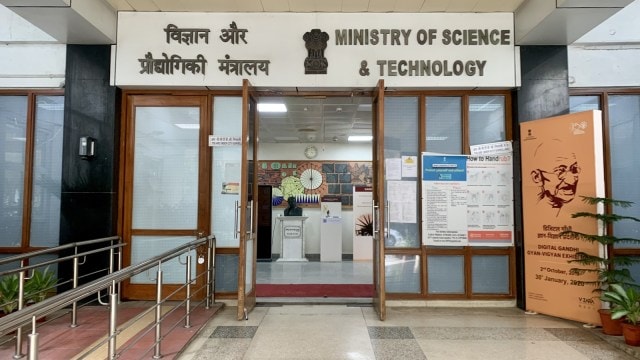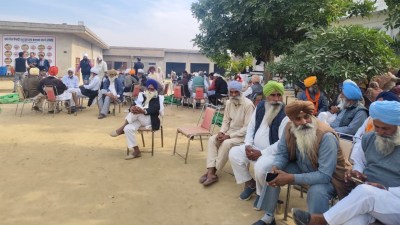The alleged exclusion of three distinguished scientists from the list of potential awardees in the final stage of selection of the newly constituted Rashtriya Vigyan Puraskar (RVP) has prompted top scientists, even including some from the jury, to raise questions about the “integrity” of the process.

This is RVP’s inaugural year, under which 33 awardees were announced across four categories: Vigyan Ratna for lifetime achievement; Vigyan Shri for scientists of all ages; Vigyan Yuva for scientists under 45 years; and Vigyan Team for collaborative research work.
The RVP was instituted last year after disbanding existing science awards, including the much-coveted Shanti Swarup Bhatnagar Prize for scientists under 45 — Vigyan Yuva is its replacement.
According to the selection process, subject experts are required to send their shortlists to the apex committee, headed by the Principal Scientific Advisor (PSA) to the Prime Minister and known as the Rashtriya Vigyan Puraskar Committee (RVPC), which then sends a final list to the Ministry of Science and Technology.
The awards were announced by the government on August 7. After this announcement, The Indian Express has learned, some members from the apex committee and the subject expert committees sought clarity from the government on the considerations that may have influenced the final list of this year’s awardees — and been behind the deletion of some names.
Three weeks later, on August 30, 26 scientists, all recipients of the Shanti Swarup Bhatnagar Award wrote to PSA Ajay Sood raising concerns over the selection process.
Story continues below this ad
Adding a twist to this controversy is that two of the three scientists, Raju and Sharma, were critical of IISc for its last-minute cancellation of a discussion on UAPA last year, that was to be led by student activists Natasha Narwal and Devangana Kalita. Both physicists had also signed open letters on the Citizenship Amendment Act and NIA action in the Bhima Koregaon matter.
When contacted, Sharma told The Indian Express that he wasn’t aware of his name being recommended by the RVPC and did not wish to comment.
Suvrat said he discovered his name was recommended by the apex committee when he received “a congratulatory message from a senior scientist involved in the selection process who assumed, in good faith, that the decisions of the scientific committee would be honoured by the government.”
“Later, this scientist explained to me that my name had been deleted,” Suvrat said, adding, “I feel that the identity of the specific individuals who were deleted is not particularly significant. What is relevant is that the government’s actions reveal intolerance for dissent. All scientists in the country should be concerned about the implications of such manipulations for academic freedom and democratic rights in scientific spaces.”
Story continues below this ad
When contacted, Chakraborty of IIT Kharagpur, said: “I do not know if my name was indeed in the final list. However, all awards have an element of subjectivity. I respect the final decision and all winners are deserving of the honour.”
Despite several calls and messages from The Indian Express, PSA Sood was unavailable for comment.
Interestingly, the information provided under “Selection Process” for these awards on the government’s website had a new sentence added over the weekend that states: “The RVPC will recommend the names to the Honourable Minister of Science & Technology, Govt. of India.” Earlier, under the selection process, the website had only stated that all nominations for the award will be placed before the RVPC.
Meanwhile, in their protest letter, the Shanti Swarup Bhatnagar Award winners have asked the PSA if the apex committee’s recommendations were accepted in entirety or revised by further committees or authorities.
Story continues below this ad
“In the latter case we request that details of the nature of these committees and the criteria employed in arriving at their decisions be made public…In order to uphold the integrity of the Bhatnagar award, we seek assurance that the procedures and criteria for determining Vigyan Yuva Shanti Swarup Bhatnagar awards are fully fair, transparent and free of extraneous considerations,” the letter said.
The signatories include TIFR theoretical physicist Shiraz Naval Minwalla; physicist Ashoke Sen at the International Centre for Theoretical Sciences in Bengaluru; mathematician Indranil Biswas at TIFR; and Atish Dabholkar, currently the Director of the Abdus Salam International Centre for Theoretical Physics at Trieste, Italy.









